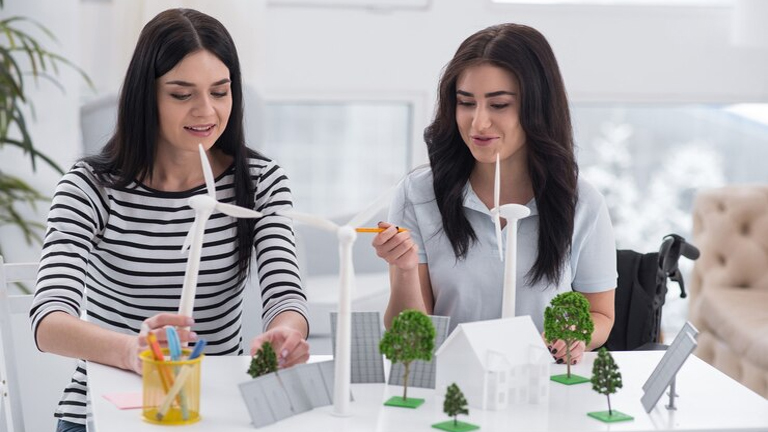In an era where climate change and environmental degradation dominate headlines, sustainable living is no longer a choice—it’s a necessity. As we step into 2025, adopting zero-waste hacks can significantly reduce our carbon footprint and contribute to a greener planet. This guide explores practical, eco-friendly strategies to help you transition to a waste-free lifestyle while saving money and promoting environmental conservation.
Why Zero-Waste Living Matters in 2025
The zero-waste movement is gaining momentum as landfills overflow and plastic pollution chokes our oceans. By 2025, experts predict that without drastic changes, global waste will increase by 70%. Embracing sustainable living helps:
-
Reduce greenhouse gas emissions from decomposing waste.
-
Conserve natural resources by minimizing single-use products.
-
Protect marine life by cutting down on plastic pollution.
-
Save money by reusing and repurposing items.
Top Zero-Waste Hacks for a Sustainable 2025
1. Ditch Single-Use Plastics Sustainable Living
Plastic waste is one of the biggest environmental threats. Swap disposable items with eco-friendly alternatives:
-
Use reusable shopping bags instead of plastic ones.
-
Carry a stainless steel water bottle or glass jar for drinks.
-
Replace plastic straws with bamboo or metal straws.
-
Opt for beeswax wraps instead of cling film.
2. Adopt a Minimalist Mindset Sustainable Living
Sustainable living starts with consuming less. Before buying, ask:
-
Do I really need this?
-
Can I borrow, rent, or buy second-hand?
-
Is this product plastic-free and biodegradable?
3. Compost Organic Waste Sustainable Living
About 30% of household waste is organic. Instead of tossing food scraps:
-
Start a compost bin for fruit peels, vegetable scraps, and coffee grounds.
-
Use compost to enrich your garden soil, reducing the need for chemical fertilizers.
4. Switch to Sustainable Personal Care Products Sustainable Living
The beauty industry generates tons of plastic waste. Try these zero-waste swaps:
-
Shampoo bars instead of bottled shampoo.
-
Safety razors with replaceable blades.
-
Menstrual cups or reusable cloth pads for feminine hygiene.
5. Shop in Bulk & Use Refill Stations Sustainable Living
Reduce packaging waste by:
-
Buying bulk grains, nuts, and spices using reusable containers.
-
Visiting zero-waste stores that offer refillable options for detergents, oils, and soaps.
6. Upcycle & Repurpose Household Items Sustainable Living
Before throwing things away, consider creative reuse:
-
Turn old jars into storage containers or candle holders.
-
Transform worn-out clothes into cleaning rags or DIY tote bags.
7. Go Digital to Reduce Paper Waste Sustainable Living
In 2025, going paperless is easier than ever:
-
Opt for e-bills and e-tickets instead of printed copies.
-
Use digital note-taking apps to minimize paper usage.
8. Support Sustainable Brands Sustainable Living
Choose companies committed to eco-friendly practices:
-
Look for certifications like Fair Trade, B Corp, or Plastic-Free.
-
Support local businesses to reduce carbon emissions from shipping.
Zero-Waste Hacks for a Sustainable 2025
| Category | Zero-Waste Hack | Eco-Friendly Alternative | Environmental Impact |
|---|---|---|---|
| Plastic Reduction | Ditch single-use plastics | Reusable bags, stainless steel bottles, bamboo straws | Reduces ocean pollution & landfill waste |
| Minimalism | Adopt a “buy less” mindset | Second-hand shopping, borrowing, renting | Lowers carbon footprint & resource depletion |
| Food Waste | Compost organic scraps | Home compost bins, worm farms | Cuts methane emissions & enriches soil |
| Personal Care | Switch to plastic-free products | Shampoo bars, safety razors, menstrual cups | Reduces microplastics & packaging waste |
| Shopping | Buy in bulk & use refill stations | Glass jars, reusable containers | Minimizes packaging waste & supports circular economy |
| Upcycling | Repurpose old items | DIY storage, cloth rags, handmade crafts | Extends product lifecycle & reduces trash |
| Digital Shift | Go paperless | E-bills, digital notes, cloud storage | Saves trees & reduces paper production |
| Brand Choices | Support sustainable companies | B Corp brands, local businesses, plastic-free packaging | Promotes ethical production & low-carbon shipping |
The Future of Zero-Waste Living in 2025 and Beyond
The zero-waste movement is evolving with innovations like:
-
Biodegradable packaging made from algae or mushrooms.
-
Closed-loop recycling systems where waste is repurposed indefinitely.
-
Urban farming to reduce food transportation waste.
Final Thoughts
Transitioning to a zero-waste lifestyle in 2025 may seem challenging, but small, consistent changes make a big difference. By adopting these sustainable living hacks, you contribute to a healthier planet while inspiring others to follow suit.


